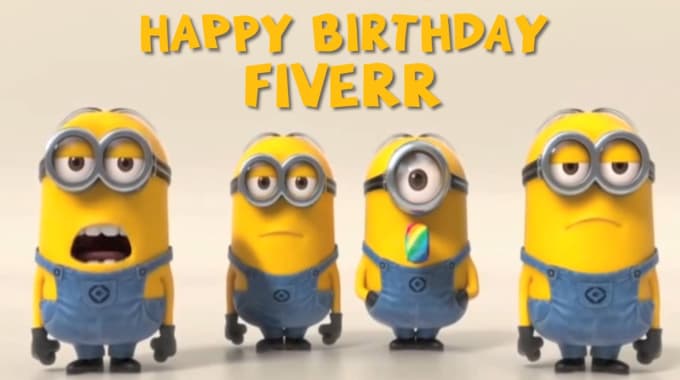

True enough, I was at first permitted to join the string ensemble only when it played easy transcriptions of Haydn or Mozart symphonies. He and his violinist brother Pav lik had been playing quartets with my own brother and sister for more than a year. It had, however, one tangible result: soon after, I was taken into the family string ensemble as an alternate to Alyosha, equally a cellist and pupil of Oss’ Oss’ch. It all ended, of course, in an eruption of tears and sobs which my mother, Oss’ Oss’ch, and my Aunt Carolina tried to stem by telling me that I played like a real prodigy. Throughout mv performance I caught glimpses of my brother and my two cousins Pavlik and Alyosha Diaghilev making faces at each other.

The reaction to my first public appearance was a mixed one: condescendingly warm in the parental age bracket, and openly adv erse if not hostile among my contemporaries.
MINIONS BIRTHDAY SONG HOW TO
Despite his Polish name and exuberantly Polonized mustachios (which drooped over his mouth and which, because of frequent immersions in soups and sauces, had acquired a permanent ocher halo like the pollen-covered pistil of a lily), Oss’ Oss’ch was a Russian patriot, a foe of things foreign (in particular, German), and a firm believer in the superiority of Russian music, Russian musicians, and Russian culture, He did not go so far as to ascribe the invention of the cello to Russian genius, but he did insist - with barely perceptible hesitancy-that Daviclov and Verjbelovitch, the two Russian cellists of the beginning of this century, were the first and finest in the world and that hi ft Russian method of teaching me how to play the cello was superior to any other.Īs a result of this method or of my own inadequacies, it took me two and a half years to graduate to a whining performance of Radi’s Aria for the A String, which I gave on the occasion of my mother’s birthday in 1914. I started taking lessons with an elderly member of the Imperial Court Orchestra, whose name was Ossip Ossipovitch Piorkovsky or Oss’ Oss’ch, as he was known to me. Thus everyone was ready to receive me, the celloplaying brother, as the next step in the formation of the projected string quartet. My older sister Onia, who lost the S of her name with the loss of her front milk teeth, had already been playing the violin for several years, and my brother Mitya (short for Dimitri) had recently added one hour a week of screeching on the viola to his former two hours a day of piano and violin. I DO not know how my mother came to devise the plan of transforming her children into a string quartet, but I remember that when I was eight and already sufficiently housebroken on the piano, I received on my saint’s day (which, owing to the fortunate collusion of the Emperor’s and my own first names, was a national holiday) a reddish, freshly lacquered, three-quarter-sized cello.


 0 kommentar(er)
0 kommentar(er)
